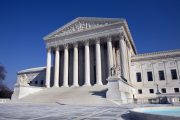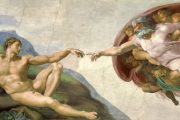
Created by Congress in 1913, the Federal Reserve is frequently labeled a bank. But it isn’t a “bank,” isn’t “federal,” and has no “reserve” that you or any other citizen can borrow from.
What, then, is the Federal Reserve? It’s a totally unconstitutional money creator that has been given power to decide the amount and value of the nation’s currency, the interest rates companies and individuals must pay to borrow, and whether there will be a boom, a bust, or just a continuation of quietly stealing the American peoples’ wealth through inflation via the creation of money out of thin air.
Much has to be left out of a short column about the Fed, but let’s provide some basic details about this extremely powerful organization.
1. When asked to approve creation of the Fed in 1913, Senator Henry Cabot Lodge Sr. (R-Mass.) stated: “This bill seems to me to open the way to a vast inflation of the currency.” Once the bill passed, Representative Charles Lindbergh (R-Minn.) summarized: “This act establishes the most gigantic trust on earth…. The new law will create inflation whenever the trusts want inflation.” Both of these lonely realists were correct, but Congress approved the Fed’s creation.
2. The Fed was conceived for the United States by a group of seven men at a highly secret Jekyll Island, Georgia, gathering in 1910. Four of these men were American international bankers based in New York, another held a Treasury Department post, another was an elected U.S. senator, and the last of the seven was Paul Warburg, a German national connected to the Rothschild banking dynasty. His promotion of the Rothschild formula prevailed.
3. The U.S. Constitution authorizes Congress to “coin money.” It does not authorize Congress to issue money. The claim that the Fed can issue money because Congress has transferred its power to “issue money” to the Fed is completely bogus. Congress was never awarded power to issue money in the first place.
4. When the Fed was enacted into law in 1913, our nation’s money was backed by gold and silver. Since 1971, Fed-issued currency has no precious metal backing, indeed no backing whatsoever. The amount of Fed-issued currency has soared, and its value has plummeted. This is the essence of inflation, an increase in the amount of currency that results in rising prices. The condition of rising prices is not inflation; it is the effect of inflation. In1913, a dollar was worth 100 cents; a current Fed-issued dollar is worth less than 2 cents.
5. Through manipulation of the amount of currency it creates, the Fed has power to swing an election. It did so in 1980 by creating a recession and damaging President Carter’s reelection hopes. And it flooded the nation with freshly created currency in 1972 to help reelect Richard Nixon.
6. Advance notification of a Fed action can result in fortunes being made at the expense of those not “in the know.” In August 1971, President Nixon and top administration officials met to plan enactment of wage and price controls. Treasury Department official Paul Volcker told the meeting’s confreres that if he had a billion dollars to use and advanced knowledge of planned Fed action, he could in a matter of days make enough money to cancel the existing $23 billion budget shortfall.
7. In 1968, Congressman Wright Patman (D-Texas), the chairman of the House Banking Committee, told his constituents: “In the United States today, we have two governments…. We have the duly constituted government…. Then we have an independent, uncontrolled and uncoordinated government in the Federal Reserve System operating the money powers which are reserved to the Congress by the Constitution.”
8. As one of the steps toward gaining total control of any nation, the 1848 Communist Manifesto called for “a national bank with state capital and an exclusive monopoly.” Tyrants throughout history have correctly understood that establishing control of a nation’s monetary powers results in gaining control of the nation.
An honest audit of the Fed by Congress would help to shine some light on the Fed’s illegitimate powers. Such an audit would be good start toward returning to what America’s Founders wanted — money backed by something of value, not by the fraudulent promises of elected and unelected money manipulators.
John F. McManus is president emeritus of The John Birch Society.




